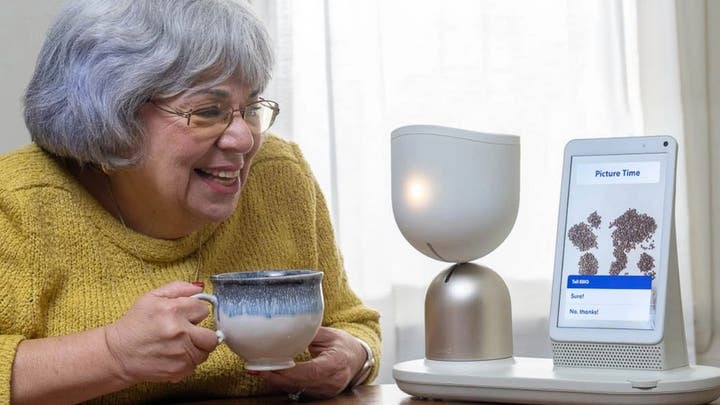Technology is changing the way we live, especially for older adults who face various challenges in their daily lives.
From social isolation to mobility issues, seniors need solutions that can help them stay healthy, safe and connected.
Here are five products that use artificial intelligence, robotics and sensors to improve the quality of life for older adults.
1. A companion robot for seniors
Ryan is an AI-enabled socially assistive robot by DreamFace Technologies designed to engage in personalized conversations, improving cognitive function and emotional well-being for older adults.
With speech recognition and facial expression recognition, Ryan understands and responds like a close friend.
Ryan also offers tailored Yoga sessions and 15 cognitive and physical games and can set reminders, making him an ideal companion for healthy aging. With safety features in place, Ryan ensures a secure and enjoyable experience for seniors living alone or in care facilities.
Ryan can help improve memory and cognition while helping ease the workload of caregivers.
2. AI smart lamp keeps an eye on seniors
Nobi Smart Lamps are more than just lights. They are smart assistants that can help seniors live safer and happier at home. Nobi uses artificial intelligence to detect falls, alert caregivers and prevent accidents.
If a person falls, Nobi asks them to confirm it and then alerts a trusted contact via an app. The contact can talk to the person through Nobi and unlock the door remotely if needed.
Nobi also helps prevent falls by turning on automatically when an older person gets up at night, for instance, to go to the toilet, take their pills or drink some water. Since most falls occur at night, Nobi offers a proactive and preventative solution. Nobi also respects privacy and lets users choose how much they want to share.
3. Vital signs monitoring 24/7
The XK300 sensor is a product that uses radar technology to monitor your vital signs from a distance. It is a convenient and comfortable way to keep track of your health without wearing any devices or wires.
The sensor is mounted on the wall or ceiling and can sense your heart rate, respiratory rate, motion and presence through blankets, clothing, furniture and even drywall.
It is approved by the FDA for use in various settings, such as hospitals, long-term care facilities and your own home. The sensor is very accurate and reliable, and it does not use any cameras or microphones.
It only measures micro-vibrations from your body and compares them to your own baseline. It can detect early signs of potentially serious events and notify your care team so that they can intervene sooner. This way, you can avoid unnecessary hospitalizations and complications.
4. A way to walk with confidence again
NexStride is a device that helps people with mobility challenges walk better. It uses light and sound signals to stimulate the brain and improve the coordination of the body. It can be attached to any cane, walker or trekking pole, and it has adjustable settings to suit different needs.
NexStride is designed for people who have conditions like Parkinson’s, stroke, cerebral palsy or multiple sclerosis, or anyone who experiences shuffling, freezing or falling while walking.
NexStride can help you restore your brain-body connection, regain your independence and reduce your risk of falling.
5. No more being alone
ElliQ is a social robot that helps older adults live independently at home. It is easy to use and adapts to their preferences and needs. ElliQ uses a combination of voice, sound, light and movement to communicate with you. It can suggest activities such as listening to music, playing games, reading news or video calling with family and friends. It can also remind you of important events, such as appointments, medication or birthdays.
ElliQ has a tablet that allows you to access various apps and services, such as email, social media or online shopping. ElliQ learns from your behavior and preferences and personalizes its interactions accordingly.
Kurt’s key takeaways
These are just some examples of how technology can make a positive difference in the lives of older adults. By using artificial intelligence, robotics and sensors, these products can provide support, comfort and stimulation for seniors.
They can also help prevent or reduce the impact of common problems such as falls, loneliness and cognitive decline. As you can see, technology can help older adults live longer, better and happier at home.
What technology needs to be developed to further assist older adults in their daily lives? Let us know by writing us at Cyberguy.com/Contact.
Source




